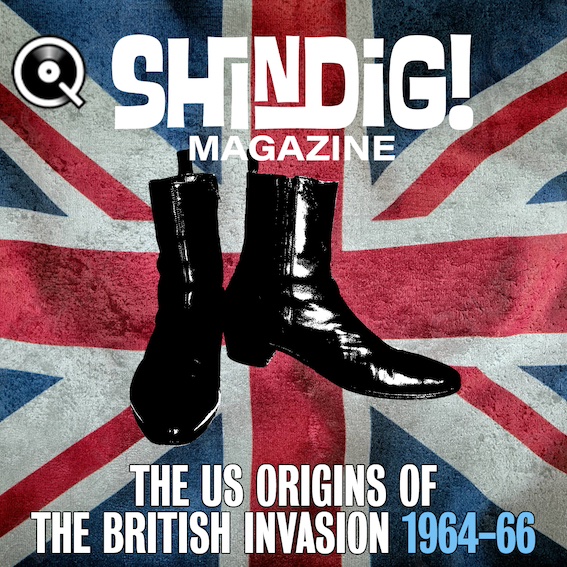Exclusive Shindig! Qobuz playlist #8: The US Origins Of The British Invasion 1964-66
We’re very excited to be media partners with the truly unique online streaming platform and download store Qobuz. The eighth of our monthly bespoke playlists, which take in all manner of genres and sub-genres, scenes and beyond, then and now, focuses on American artists covered by Brit bands in the heyday of mid-6os invasion

It’s one of pop music’s most delicious ironies that the catalogue of songs employed by the frontline of the so-called British Invasion bands that stampeded the US charts between early 1964 and early ’66 was largely drawn from the American songbook. A case of bringing coals to Newcastle, perhaps? Except that Newcastle didn’t want coals, of course – it wanted raucous American blues records. Like practically everything of significance that happened to pop music in the ’60s, we can lay the credit/blame squarely at the feet of The Beatles, whose adoption of American music – rock ‘n’ roll, R&B, soul, girl groups, show tunes – was a crucial factor in their appeal and possibly the overriding influence on their songwriting. They reminded America of its own ground-breaking songwriters – Goffin & King, Leiber & Stoller, Arthur Alexander – even as The Beatles’ success threatened to sweep away everything that had gone before.
The Rolling Stones meanwhile erred towards blues and R&B but shared that love of Stax and Motown soul. But it’s the second wave of British Invasion bands – the starstruck combos who suddenly found themselves hot property as their UK chart placings were matched or even bettered by their US ones – that provides the focus of this playlist. While a handful of defiant outliers like The Dave Clark Five and The Kinks wrote material strong enough to repeatedly assault the top echelons of the UK charts and translate that success Stateside, the likes of The Searchers, Manfred Mann, Herman’s Hermits, Moody Blues and Georgie Fame & The Blue Flames (all of whom scored UK #1 hits with interpretations of American songs) and The Hollies, Animals, Wayne Fontana & The Mindbenders and Swinging Blue Jeans (similarly Top 3) relied on outside material. So too did the holy trinity of British female stars – Dusty Springfield, Sandie Shaw and Cilla Black – who had the luxury of dedicated in-house songwriters eager to give them new material, but still chose to pilfer the Bacharach & David songbook on a regular basis. The Spencer Davis Group, Animals, Pretty Things and Georgie Fame (at least until solo success beckoned) skilfully retained their blues and R&B credentials while notching up a string of hits.
The Animals even became recipients of bespoke Goffin & King songs procured for them by their producer Mickie Most. This game of transatlantic musical ping-pong meant that in 1965, The British Invasion had birthed a fresh wave of US bands that welded the UK backbeat to Dylan’s protest poetry and sold it back to the Brits. The Byrds claimed they were influenced as much by the sound of The Searchers as that of The Beatles; the garage band explosion owes its snot, attitude and aggression to the Stones and Animals. But for a while – as the storm of Beatlemania calmed just long enough for the Atlantic Ocean to part and allow a gang of bespectacled jazz buffs from south London (hello, Manfred Mann) to mosey up to #1 in America with a cover of a minor hit by a NYC vocal group The Exciters (see also ‘Tell Him’ on this playlist) – we witnessed the beginning of a cross-cultural pop music exchange that hasn’t let up for one moment since.
© Andy Morten /Shindig! magazine in partnership with Qobuz

